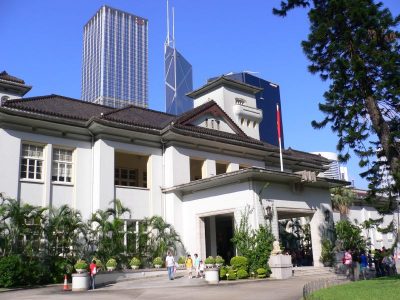‘One Country, Two Systems’ Policy Should be Followed for Sustained Development of Hong Kong

Article originally published by Renmin Ribao (People’s Daily), translated from the original Chinese
The “one country, two systems” policy is proven not only the best solution to the Hong Kong question left over from history, but also the most ideal institutional arrangement to ensure Hong Kong’s long-term prosperity and stability, People’s Daily said in its editorial published on Saturday, the day marking the 20th anniversary of Hong Kong’s return to the motherland.
The policy is also China’s unique contribution to political civilization of the mankind, the article added.
The concept of “one country, two systems” was put forward in the early 1980s by late Chinese leader Deng Xiaoping, in an effort to realize the peaceful reunification of China.
Over the past 2 decades, the central government has followed the “one country, two systems” principle, abided by China’s Constitution and the Basic Law, the mini-constitution of Hong Kong Special Administrative Region (HKSAR), managed to fulfill the responsibilities stipulated by the constitutional rules and rendered staunch support to the law-based governance by Chief Executive and government of the HKSAR, the paper said.
During the same period, the special administrative region, which was authorized to exercise a high degree of autonomy, has enjoyed executive, legislative and independent judicial power, including that of final adjudication, the article pointed out, adding that its previous capitalist system and the way of life remained unchanged.
The laws previously in force before Hong Kong’s returning remained basically the same as well over the last 20 years, it further stressed.
With a steady economic growth, Hong Kong maintained its position as global financial, trade and shipping hub, and was recognized as one of the world’s freest and most competitive economies for years, the People’s Daily highlighted.
Its education, medical care, culture, sports, social insurance and other undertakings have witnessed improvements as well, the commentary added.
Thanks to the unremitting efforts to improve the democratic political system, the Hong Kong citizens now enjoy unprecedented democratic rights and freedom, the paper noted.
As a result of its closer bonds with the mainland, Hong Kong was driven by the development of the whole country. Its increasing exchanges with the outside world also endow it with rising international influence.
The “one country, two systems” policy needs to be further optimized, the editorial said, explaining that in the past two decades, the central government and the Hong Kong government, while dealing with the newly-emerging challenges, have realized the key grounds to implement the “one country, two systems”.
In order to better the “one country, two systems” undertakings, the central government and the Hong Kong government should understand and implement the policy in a comprehensive and correct manner, keep to the fundamental objectives of the policy, and guard the national sovereignty, security as well as development interests, the paper emphasized.
Equal weights should be given to the two parts of the “one country, two systems” policy, that is to say, to adhere to the “one country” principle, while respect the difference of the “two systems”, maintain the power of the central government, while ensure the high degree of autonomy of the region government, play the backing role of the mainland, while improve the competence of Hong Kong itself, the article underlined.
Only when those actions are taken, can the “one country, two systems” policy be implemented according to the planned track and march towards sustained development along the right direction, People’s Daily concluded at last.
Featured image: Hong Kong Government House (Source: Wikimedia Commons)

